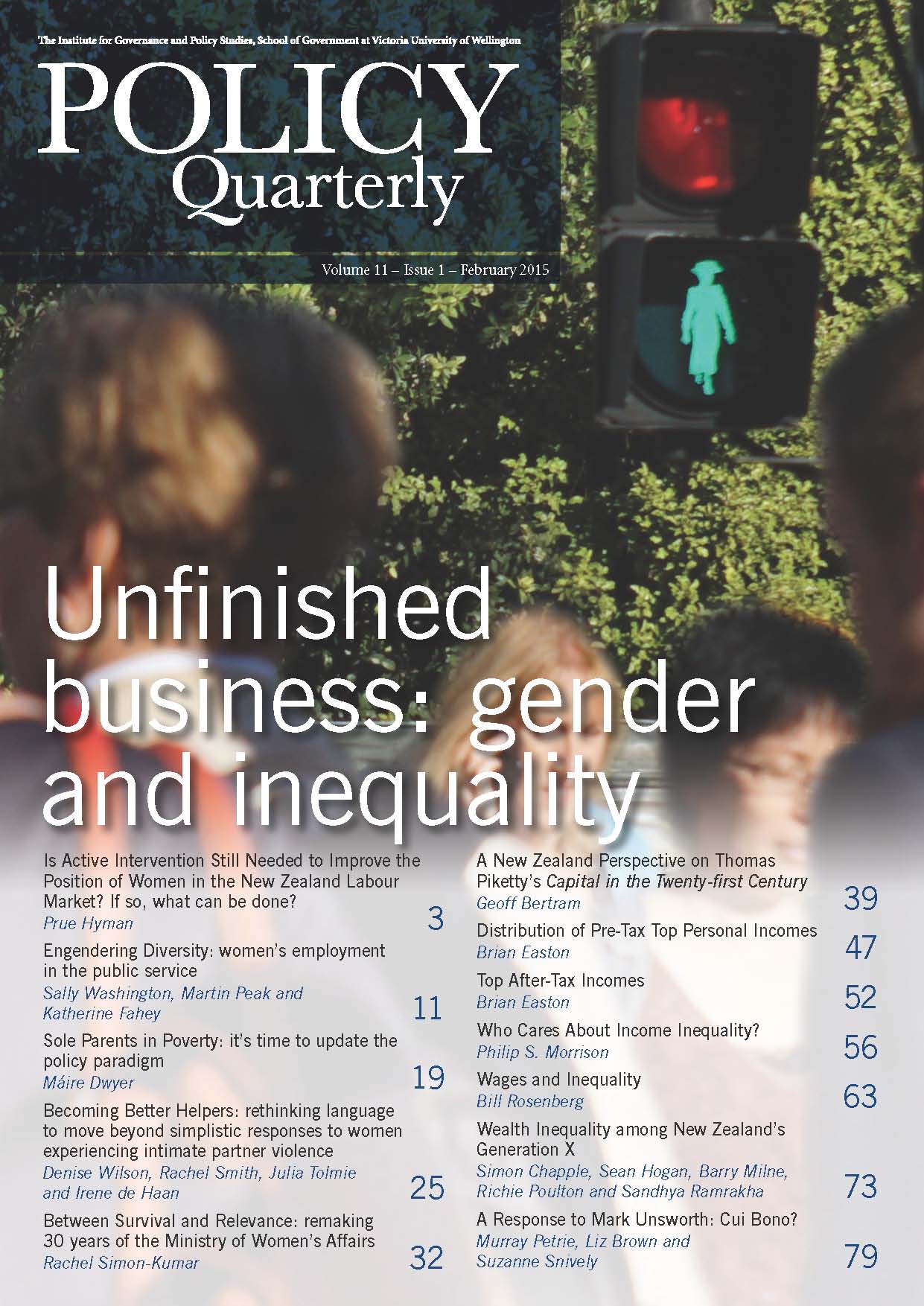Becoming better helpers: rethinking language to move beyond simplistic responses to women experiencing intimate partner violence
DOI:
https://doi.org/10.26686/pq.v11i1.4529Keywords:
Family Violence Death Review Committee (FVDRC), gendered problem, empowerment theory, effective interventionAbstract
The prevalence of family violence is a persistent challenge facing New Zealand. Its effects are pervasive, spanning multiple levels: individuals, family/wha -nau, communities, and society in general. A major challenge in effectively addressing family violence is the apparent disconnect that exists between the various agencies and services that interact with families/wha -nau where abuse has become a defining feature of their lives. Despite efforts by agencies to become more collaborative, they tend to function in silos. In conducting a series of death reviews the Family Violence Death Review Committee has found agency records to reveal a lack of shared understanding of intimate partner violence as a gendered problem. The records misconstrue victims’ and perpetrators’ roles and convey distorted notions about the realities of victims’ lives and the context of the violence they suffer. This leads to practices that put victims and their children at further risk. In this article we discuss findings related to the use of language and the concept of empowerment that need to be critically considered by those working with victims and perpetrators and those planning and designing family violence responses and services.
Downloads
Downloads
Published
Issue
Section
License
Permission: In the interest of promoting debate and wider dissemination, the IGPS encourages use of all or part of the articles appearing in PQ, where there is no element of commercial gain. Appropriate acknowledgement of both author and source should be made in all cases. Please direct requests for permission to reprint articles from this publication to Policy-Quarterly@vuw.ac.nz.



